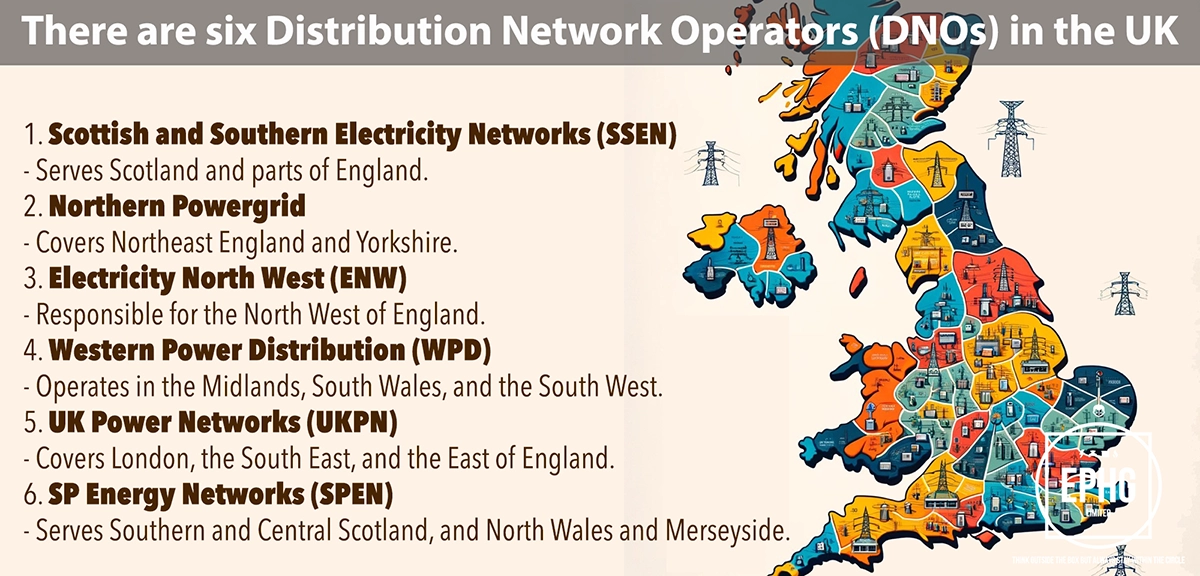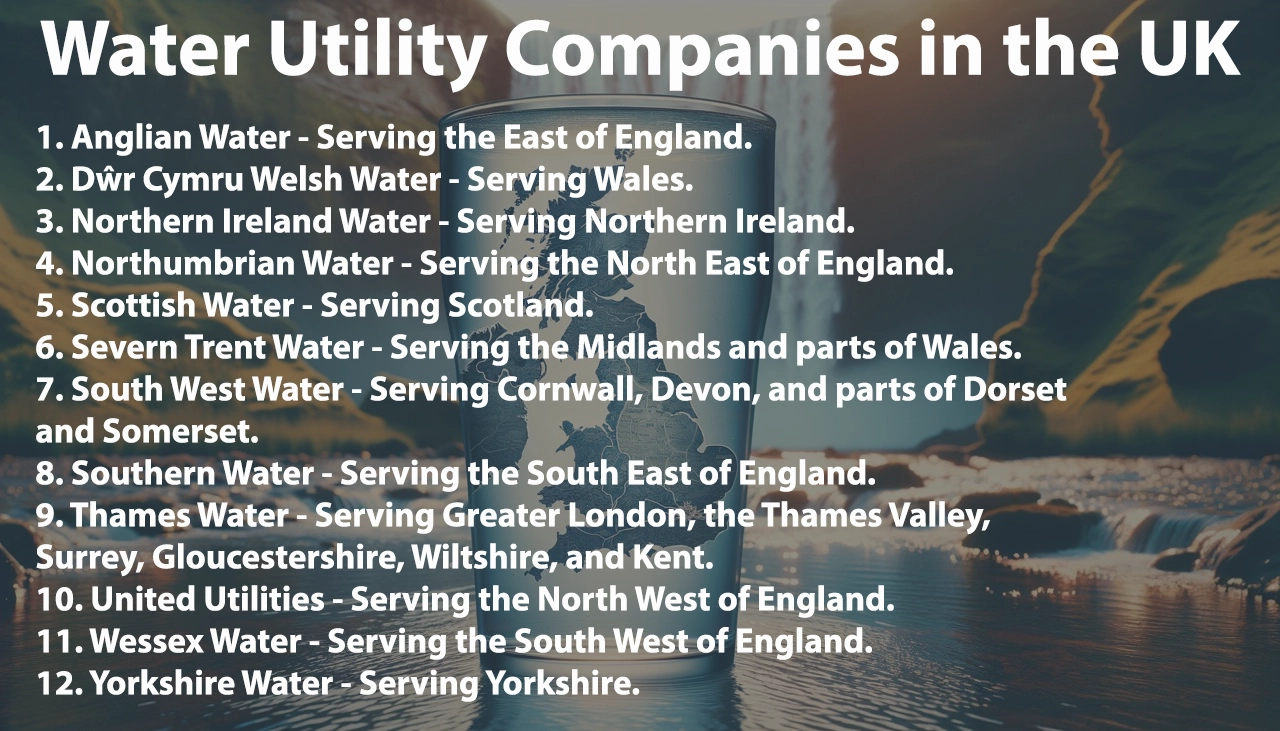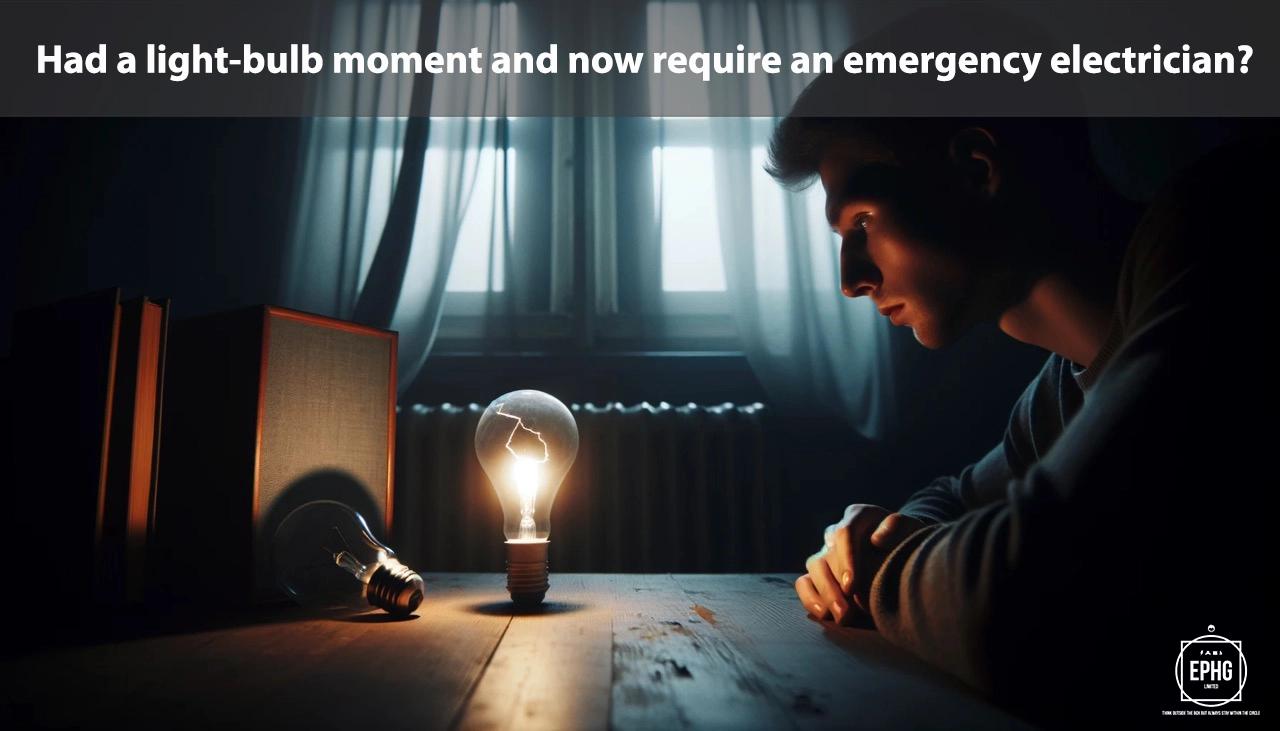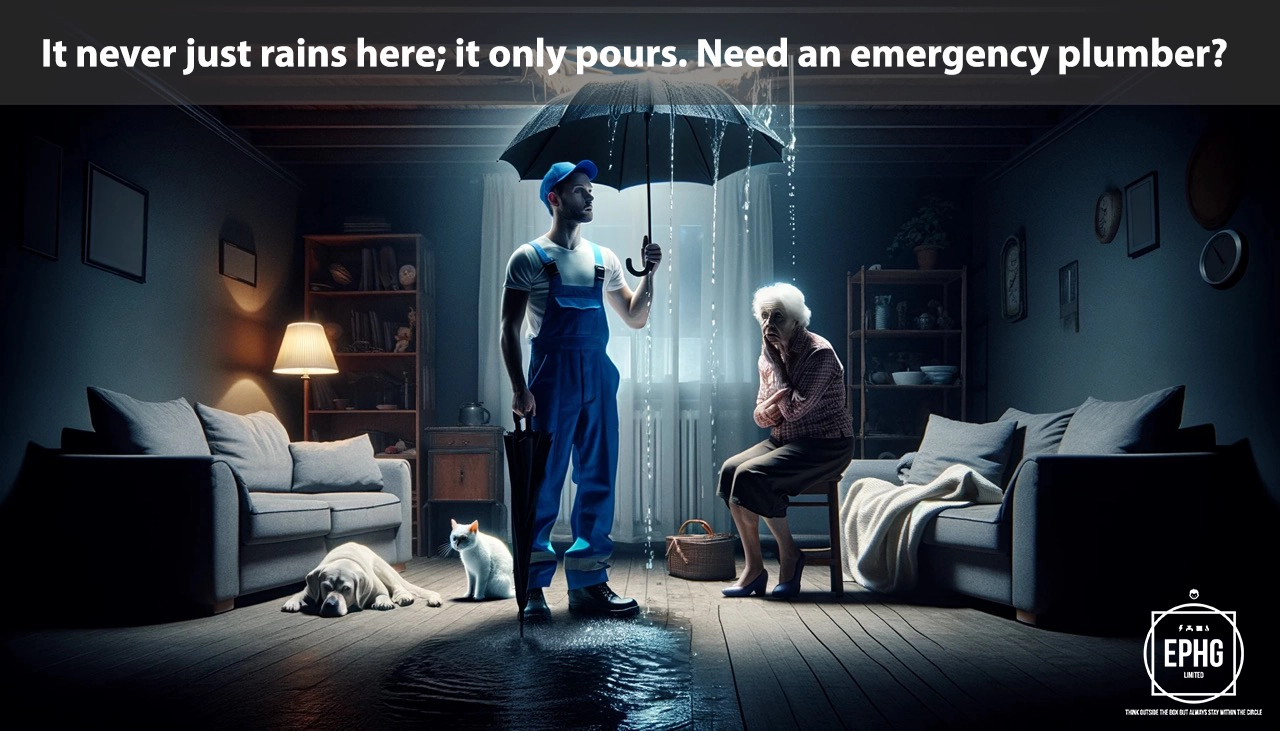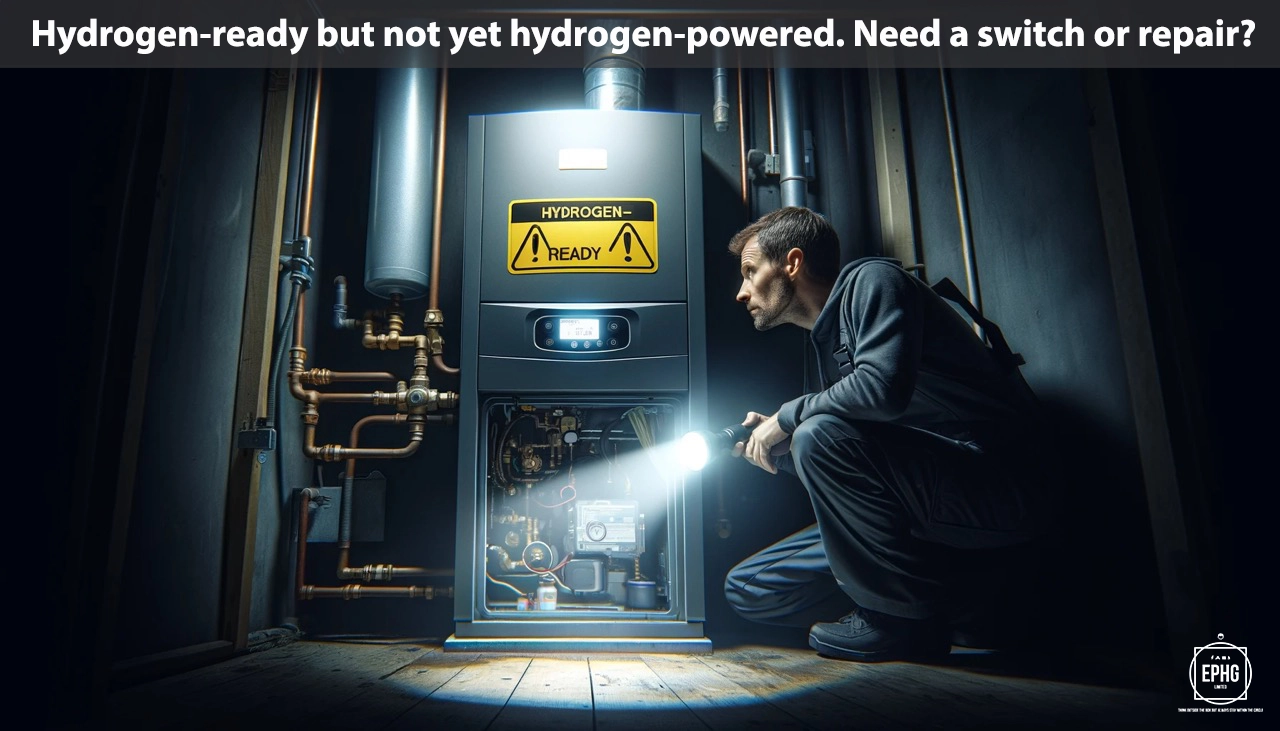
BS Postcodes for Utilities & Services in Bristol
Introduction: The BS postcode area, covering Bristol and its surrounding regions, here we delve into insightful details on water & electric, along with other vital services.
Water in Bristol
Where does the water supply come from in Bristol and is there ever a shortage of water?
In Bristol, the primary water supply comes from local reservoirs, rivers, and groundwater sources, managed by Bristol Water and Wessex Water. These sources are treated meticulously to ensure they meet stringent safety and quality standards before distribution. Despite Bristol’s generally reliable water provision, the region faces challenges from urban expansion, environmental changes, and peak consumption periods. Water conservation measures may be advised during drought conditions. Residents are encouraged to use water responsibly to help sustain the city's supply, especially during summer months when demand spikes.
What is the hardness & quality of the water in Bristol and can this affect your health?
The water in Bristol ranges from soft to moderately hard, depending on the specific area and source. Hard water, prevalent in some parts of Bristol, contains higher levels of minerals like calcium and magnesium, leading to scaling in appliances and affecting soap efficiency. Despite this, the water complies with all health and safety regulations, making it safe for consumption. Water hardness can have benefits, such as providing essential minerals, though it may necessitate the use of water softeners or filters for those preferring softer water for household use. Continuous monitoring ensures the water remains safe and of high quality for all residents.
Electricity in Bristol
Where does the electric supply come from in Bristol and what is the future of energy there?
Bristol's electricity supply is a blend of traditional energy sources and a growing emphasis on renewable resources. The city, historically reliant on fossil fuels, is transitioning towards greener alternatives, including wind, solar, and bioenergy, supported by the national grid. Local initiatives, like the Bristol Energy Cooperative and city council projects, aim to increase the use of local renewable energy. The future of energy in Bristol is focused on sustainability, aiming to reduce carbon emissions and enhance energy independence. Investments are being made in renewable energy infrastructure and technology, with Bristol striving to become a leading city in environmental sustainability and green energy usage.
When is hydrogen coming to gas boilers in Bristol?
The adoption of hydrogen for residential heating in Bristol aligns with national goals to decarbonize heating systems. The city is expected to follow the UK's hydrogen roadmap, which involves research, pilot projects, and eventual rollout. While specific timelines for Bristol are still under development, the transition towards hydrogen heating will likely progress in phases, beginning with pilot areas before wider implementation. Residents should maintain their current heating systems while staying informed about future developments and considering alternative, more sustainable heating solutions as they become available.
Where Does the Wastewater Go in Bristol
In Bristol, wastewater management is crucial for protecting the environment and public health. Wastewater from homes, businesses, and other sources is collected and treated at local facilities, such as the Avonmouth Wastewater Treatment Works, ensuring harmful pollutants are removed. The treatment process complies with strict standards, with the purified water being safely released into local waterways. Ongoing investments in the sewage system and treatment processes aim to improve efficiency and environmental outcomes, reflecting Bristol's commitment to sustainability and clean water initiatives.
Regions and Services:
The BS postcode covers a varied landscape, including the bustling city of Bristol and the charming areas of North Somerset and South Gloucestershire. Key regions include:
- Bristol City: A core area for urban development, showcasing an extensive range of electrical and gas infrastructure along with a growing focus on renewable energy sources.
- Bath, Weston-super-Mare, and Clevedon: Cities and towns combining historic appeal with contemporary amenities, demonstrating a commitment to both preserving heritage and embracing modern services.
- Portishead, Nailsea, and Yate: Communities noted for their suburban charm and evolving utility services, increasingly integrating sustainable energy solutions to meet the needs of their residents.
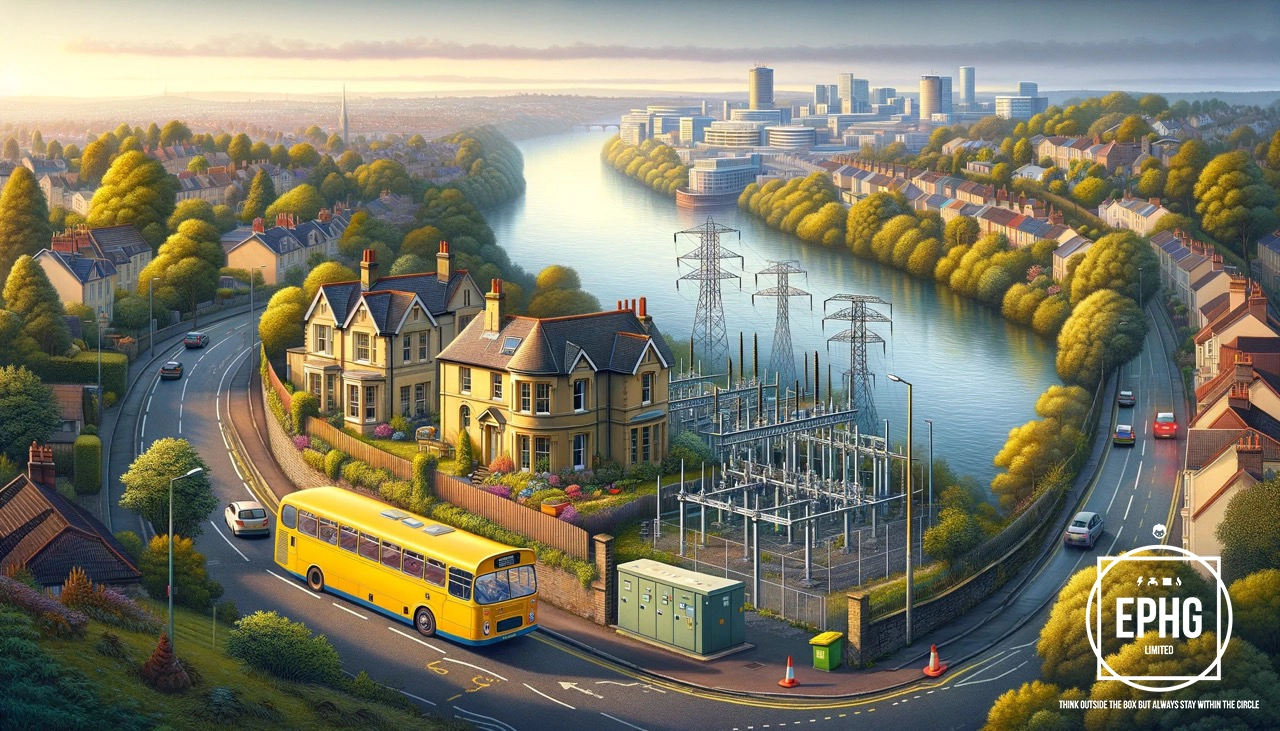
Regions within the BS Postcode
Bristol City
- BS1: Bristol city centre, Redcliffe
- BS2: Kingsdown, St Paul's, St Phillip's, St Agnes
- BS3: Bedminster, Southville, Bower Ashton, part of Totterdown, Windmill Hill
- BS4: Brislington, Knowle, Knowle West, St Anne's, part of Totterdown
- BS5: Easton, St George, Redfield, Whitehall, Eastville, Speedwell, Greenbank, Barton Hill
- BS6: Cotham, Redland, Montpelier, Westbury Park, St. Andrews
- BS7: Bishopston, Horfield, part of Filton, Lockleaze, Ashley Down
- BS8: Clifton, Failand, Hotwells, Leigh Woods
- BS9: Coombe Dingle, Sneyd Park, Stoke Bishop, Westbury on Trym, Henleaze, Bristol
Surrounding Areas and Villages
- BS10: Brentry, Henbury, Southmead part of Westbury on Trym
- BS11: Avonmouth, Shirehampton, Lawrence Weston
- BS13: Bedminster Down, Bishopsworth, Hartcliffe, Withywood
- BS14: Hengrove, Stockwood, Whitchurch, Withywood
- BS15: Hanham, Kingswood
- BS16: Downend, Emersons Green, Fishponds, Frenchay, Pucklechurch, Staple Hill
- BS20: Portishead
- BS21: Clevedon
- BS22: Weston-super-Mare, Worle
- BS23: Weston-super-Mare
- BS24: Hutton, Locking, Weston-super-Mare
- BS25: Churchill, Winscombe, Sandford, Shipham
- BS30: Bitton, Cadbury Heath, Warmley, Wick
- BS31: Chewton Keynsham, Keynsham, Saltford
- BS32: Almondsbury, Bradley Stoke
- BS34: Part of Filton, Little Stoke, Patchway, Stoke Gifford
- BS35: Alveston, Rudgeway, Thornbury
- BS36: Frampton Cotterell, Winterbourne
- BS37: Chipping Sodbury, Yate
- BS39: Clutton, Temple Cloud
- BS40: Chew Valley, Chew Magna, Chew Stoke, Wrington
- BS41: Long Ashton
- BS48: Backwell, Nailsea
- BS49: Congresbury, Yatton
